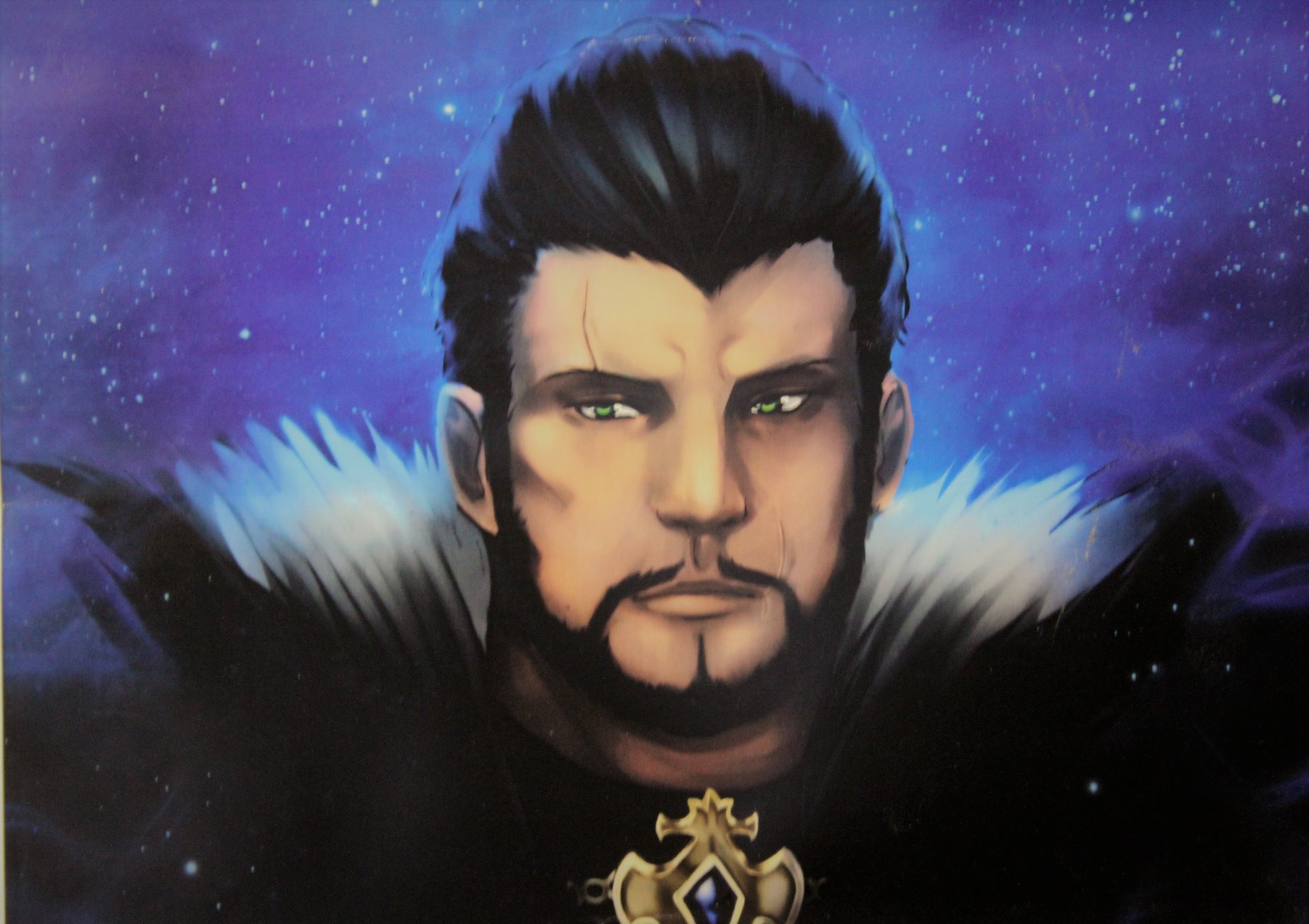Ah i see. I’m surprised tbh because a lot of people i’ve talked to prefer a simplistic plot where they’re the heroes and everything they do is considered good. Which 14 besides shb, hasn’t really done with its story. But yeah it would be nice to have more showing and less only telling. I harbor that sentiment especially towards their line of “light isn’t always good darkness is always bad.” Yet the WoL has only ever used light in the main story so….hopefully endwalker solves that issue by actually having us use darkness for once. I think they did really well with the ascian story so far in terms of getting rid of the good vs evil shtick. So much so a lot of people i know(including myself) agree with the antagonists views moreso than that of the protagonists. If this is considered in game politics then i suppose it’s something i’m slightly interested in lol.
-
10-06-2021 05:46 AM #61Player

- Join Date
- Feb 2021
- Posts
- 3,472
- Character
- Kizuya Katogami
- World
- Cerberus
- Main Class
- Conjurer Lv 81
(4)
-
10-06-2021 07:43 AM #62Player

- Join Date
- Feb 2021
- Posts
- 3,472
- Character
- Kizuya Katogami
- World
- Cerberus
- Main Class
- Conjurer Lv 81
Even back in ARR, he gave info that definitely made you think, well, to those that don’t need things spelled out for them. There were a lot of signs in ARR,HW,and SB that basically showed things weren’t as they seemed and it wasn’t black and white. ShB was just what spelled things out for the people who didn’t pay attention. Everyone in 14 can in some way be shown as bad. Uldah still allows slavery and also participated in genocide in the past. It took this long for Limsa to acknowledge its wrongs and i mean, they participated in conquest against the kobolds. Gridania has racism problems and also just really bad relations in regards to elementals. If it wasn’t for conquest we wouldn’t really be where we are today anyhow though so…yeah. Also idk what shadowy spirits or dark god is meant to imply. We know dark isn’t equal to evil lmao. Let’s not forget the lies the light god has told us. Or the fact that she’s behind the destruction of the world lmao.
(3)
-
10-06-2021 10:59 AM #63
In a way the Garlean Empire has quite a lot of shades of of Imperial Japan. A perceived slight at being considered inferior to other nations, leading it rapid industrialization and militarization. Then engaging in what amounts to a racial war of revenge against other nations under the auspices of unity against a greater threat. Which then results in an utter collapse and destruction of the nation.
(2)
-
10-06-2021 04:25 PM #64Player
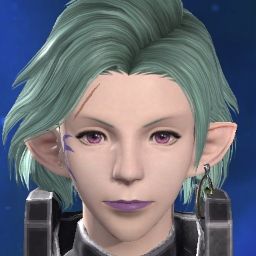
- Join Date
- Sep 2021
- Location
- Solution Eight (it's not as good)
- Posts
- 3,029
- Character
- Ein Dose
- World
- Mateus
- Main Class
- Alchemist Lv 100
This is a big part of why I'm pretty down on the WoL's actual political stances (and honestly, the way the story itself gets framed as a result); Emet-Selch is a rancid, genocidal rat-man who has shown no remorse for his actions and has fairly direct lines to pretty much every single 'core storyline' problem in the entire game, as a leader of the Ascians, the Allagans and the Garleans. He is awful, and doesn't deserve the respect we are railroaded into giving him. I've always instead advocated for a '...' response to be available for every single dialog choice, though; it's a really good failsafe option for whenever the writing just doesn't really manage to reach the player (which will always happen to someone, eventually).
And I find the 'remember that we lived' request also a little rich, because... well, inside the story, there are completely incalculable amounts of civilizations that are dead as a direct cause of him; are they not just as worth memorializing, and just don't get to make the request because they don't have immortal ghost wizards to say it? The Scions pledge to remember them, but are they ever going to offer the same to the likes of Mhach, Amdapor and Nym, who got killed by these guys? It also actually hurts a bit on an OOC level, because... well, I play a Duskwight. I have been waiting for the writers to remember Gelmorra for YEARS now, and will probably be waiting for years more. Why does Art Deco Atlantis get to jump the queue?
And as an aside, I do like that scene with Nanamo and Godbert, too. Because... well, yeah, it is pretty terrible, but it isn't outright saying 'capitalism is the only right way to elevate the oppressed, despite capitalism being what oppressed them' like how a number of people seem to read it. It's basically saying 'this system is terrible, but it's possible to force it to produce good'.(6)
-
10-06-2021 04:35 PM #65Player

- Join Date
- Sep 2021
- Location
- Solution Eight (it's not as good)
- Posts
- 3,029
- Character
- Ein Dose
- World
- Mateus
- Main Class
- Alchemist Lv 100
And the Garlean Empire is a weirdo conglomeration of a bunch of various real-world empires, inspiration-wise. The Roman Empire is probably the biggest one, yeah there's a bit of Imperial Japan, there's a LOT of Nazi Germany, a bit of the USSR is sneaking in lately...
Generally speaking the Garleans are basically an Extremely Fancy Roman Empire, there's just individuals that are differently-oriented that inspire different surroundings. Including Varis himself, honestly.(3)
-
10-06-2021 07:01 PM #66Player
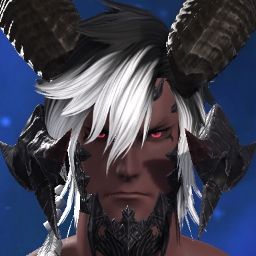
- Join Date
- Sep 2021
- Posts
- 2,305
- Character
- Fenris Pendragon
- World
- Spriggan
- Main Class
- White Mage Lv 80
At least in FFXVI all but one of their nations have a distinct fantasy feel. A Grand Duchy, a Holy Empire, and two Kingdoms. Only one republic.
Whereas here in FFXIV:
Limsa - a bizarre political system where its ex-pirates are pretending to be...something.
Gridania - child druids who commune with elementals. No distinctive architecture. Literally just trees.
Ul'dah - a "monarchy" where the monarch wants to abdicate and create a republic.
Ishgard - originally a monarchy, then a theocracy, and now it's a republic.
Doma - a monarchy we were actually able to preserve (thank God)
Hingashi - a monarchy (but we have access to only 1 city, and it doesn't fulfil the European fantasy of a kingdom)
Garlemald - literally Detroit
Thavnair - ??? potions ??? elephants ???
Dalmasca - in ruins, storyline shelved.
Bozja - killed the queen, on the way to becoming a republic.
Sharlayan - another republic.
One of the reasons 1.0 suffered so much is because so many fantasy elements were locked behind Ishgard. The only real castle in the entire game at that point. Even now, it's frustrating that the game lacks a fantasy feel until you reach 3.0. Wherever we end up going in 7.0, I just hope we return to fantasy instead of constantly nation building and trying to "liberate" people and turning their countries into more republics.
At least in FFXII where you're trying to liberate Dalmasca, you had the princess in your party and by the end she becomes Queen. In FFXV, your main controllable party member is a prince, despite its more modern feel. In FFXI, one of your starting areas was an elven kingdom. In FFIX, you have a princess in your party and its most iconic cities belong to kingdoms. In FFVI, you get to have two princes in your party, and in FFV you get two princesses. By the end of FFIV various characters who were implied to hold some kind of noble/military rank become the monarchs of their respective nations.
FF has historically never focused so much on the idea of republics to this extent and by this point the gimmick has become stale.(3)
-
10-06-2021 07:11 PM #67Player

- Join Date
- May 2014
- Location
- The Interdimensional Rift
- Posts
- 3,600
- Character
- Vicious Zvahl
- World
- Excalibur
- Main Class
- Machinist Lv 100
(0)
(Signature portrait by Amaipetisu)
"I thought that my invincible power would hold the world captive, leaving me in a freedom undisturbed. Thus night and day I worked at the chain with huge fires and cruel hard strokes. When at last the work was done and the links were complete and unbreakable, I found that it held me in its grip." - Rabindranath Tagore
-
10-06-2021 08:08 PM #68Player

- Join Date
- Sep 2021
- Location
- Solution Eight (it's not as good)
- Posts
- 3,029
- Character
- Ein Dose
- World
- Mateus
- Main Class
- Alchemist Lv 100
Focusing only on the ones that we actually know things about (so we can't say much about Dalmasca, Thavnair or Amaurot), there actually aren't a lot of republics per se (although many look to democratic solutions), but everything that isn't a real-world-rooted system does have some form of history in some form of fantasy.
Limsa: Essentially, an attempt at actually realizing and exploring the concept of Libertalia, the probably-mythical pirate colony.
Ul'Dah: The Syndicate are an idea right out of cyberpunk, complete with the recognition that it's actually a terrible system.
Gridania: Oppressive mystical theocracy combined with 'tree elf utopia'. Very rarely do you see those done simultaneously, but they're both pretty standard by themselves.
Ishgard: When we turned up, it was a theocracy overtly borrowing from the Vatican, but also from Byzantium. And of course, 'holy city' is a pretty standard fantasy setting. After 3.0 wraps they actually become... something democratic, but otherwise unclear. They have a House of Commons and House of Lords, similar to Great Britain (which is actually a pretty bad democratic system), but it's not clear who their head of state actually is. Aymeric is a speaker of sorts, but that's it.
Ala Mhigo: Previously a monarchy, then an occupied Imperial state. Afterwards they refused to go back to a monarchy, because the monarchy they had was famously hot garbage and was actually already overthrown. Now... again, its head of state is unclear, but it probably is some form of republic, so this one you get.
Hingashi: Some level of feudal Japanese lordship, specifics are not gone into.
Doma: Also a form of feudal Japanese lordship, with a brief time as an occupied Imperial state. Unlike Ala Mhigo, the Doman people had no real problems with their previous form of government, so they were fine with reinstating it.
Crystarium: Uhh... post-scarcity socialist commune. It's basically Star Trek. Very weird choice for a story that's ultimately post-apocalyptic, gotta admit.
Eulmore: Democratically-elected municipality both before and after Vauthry, dictatorial lordship under him.
Bozja: Far in the past, absolute monarchy. There's no mention of a royal family in the story of the Empire's takeover, however, so we can assume that changed eventually, although it was clearly some form of heavily-stratified aristocracy. No clear evidence of what it is becoming in terms of governmental form, but it will be more egalitarian.
Sharlayan: While its members of government seem to be democratic in decision-making, everything we've heard suggests that their appointment is likely either oligarchical (far too many examples in real world and fiction), or a geniocracy (rule by the smartest, you see appeals scattered about fiction).
And Garlemald, of course, is a totalitarian empire. Was a republic before then, though. Star Wars-style.(9)Last edited by Cleretic; 10-06-2021 at 08:22 PM.
-
10-06-2021 08:19 PM #69Player

- Join Date
- Sep 2021
- Location
- Solution Eight (it's not as good)
- Posts
- 3,029
- Character
- Ein Dose
- World
- Mateus
- Main Class
- Alchemist Lv 100
So there's not a lot of actual democratic states in FFXIV's world; only four, and one of them is currently really ambiguous. It's just that the ones that we get all eventuate from some form of government overthrow, which tend to be big deals that we're around for, so they get the spotlight. And honestly, they're all fair, and none of them are really the Scions' fault. They're government systems formed by a wide population overthrowing oppression; why would they reform into a form of government they can't control, when they could instead become one they can?
Like, let's go straight to the definite republic, with a Senate and everything. The Ala Mhigans went from a monarchy they hated so much they overthrew it, to getting taken over by a totalitarian empire they also overthrew. At this point the entire population knows nothing but life under really bad tyranny; why would they ever pick a form of government that didn't let them have a way to say what should happen?
But as for more flavor than anything... frankly, I don't see it. There's a LOT of flavor, and a lot of different forms of fantasy setting in place. It's just that very few of them are straight 'knights and castles' medieval European, which seems to be the main one you're looking for.(4)Last edited by Cleretic; 10-06-2021 at 08:21 PM.
-
10-07-2021 12:23 AM #70Player
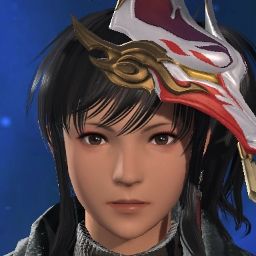
- Join Date
- Aug 2011
- Location
- Limsa Lominsa
- Posts
- 2,216
- Character
- Midi Ajihri
- World
- Hyperion
- Main Class
- Arcanist Lv 100
FFVII has no monarchies and is much less traditional fantasy than FFXIV 1.0 but it's one of if not the most popular FF game in the entire series. Its world is ruled by an electric company led by a president.
FFVIII is also sparse on fantasy and partially about liberating the world from the heel of a military dictatorship and both that nation (at least at first) and its republic rival are led by presidents.
FFXI had Bastok which is a republic from the very outset and has a lot of similarities to 19th century United States.
If every single FF game has a monarchy and a party of nobles, doesn't that get stale? Hell, both FFII and FFXII have the same basic plot of "evil empire wants to take over the world and they kill a king and take over his land and we help the princess fight the empire to restore her kingdom". Final Fantasy Tactics is about how monarchies and nobility are corrupt and bad and the regular people are stomped beneath them with no care.
It's already apparent in the world of FFXIV that the world is progressing technologically and sociologically to the point where similar to our world, monarchies stopped making sense. Ul'dah isn't the only nation of the originals that is changing. Look at Limsa, their whole basis of government is a bunch of pirate ship captains hold a race every 7 years and whoever wins the race becomes dictator and can completely redo the entire nation how they wish. The largest "opposition party" as it were is Captain Hellfyr and his Bloody Executioners and he has since stopped trying to fight the ban on piracy and has more or less lent his support to the Admiral. There was a whole arc on that.
Even Garlemald used to be a republic until the ascians got involved. And in the aftermath of the political upheavals that ensued, all the kings are dead in their captured nations and the people want representation in their newer governments. Doma seems to be an exception to the rule, but they're also a small nation comparatively, and a weak overall government since the clans in the Doman mountains have their own smaller monarchies.(6)Last edited by MikkoAkure; 10-07-2021 at 12:37 AM.

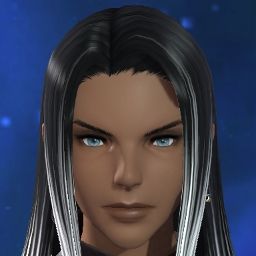

 Reply With Quote
Reply With Quote



